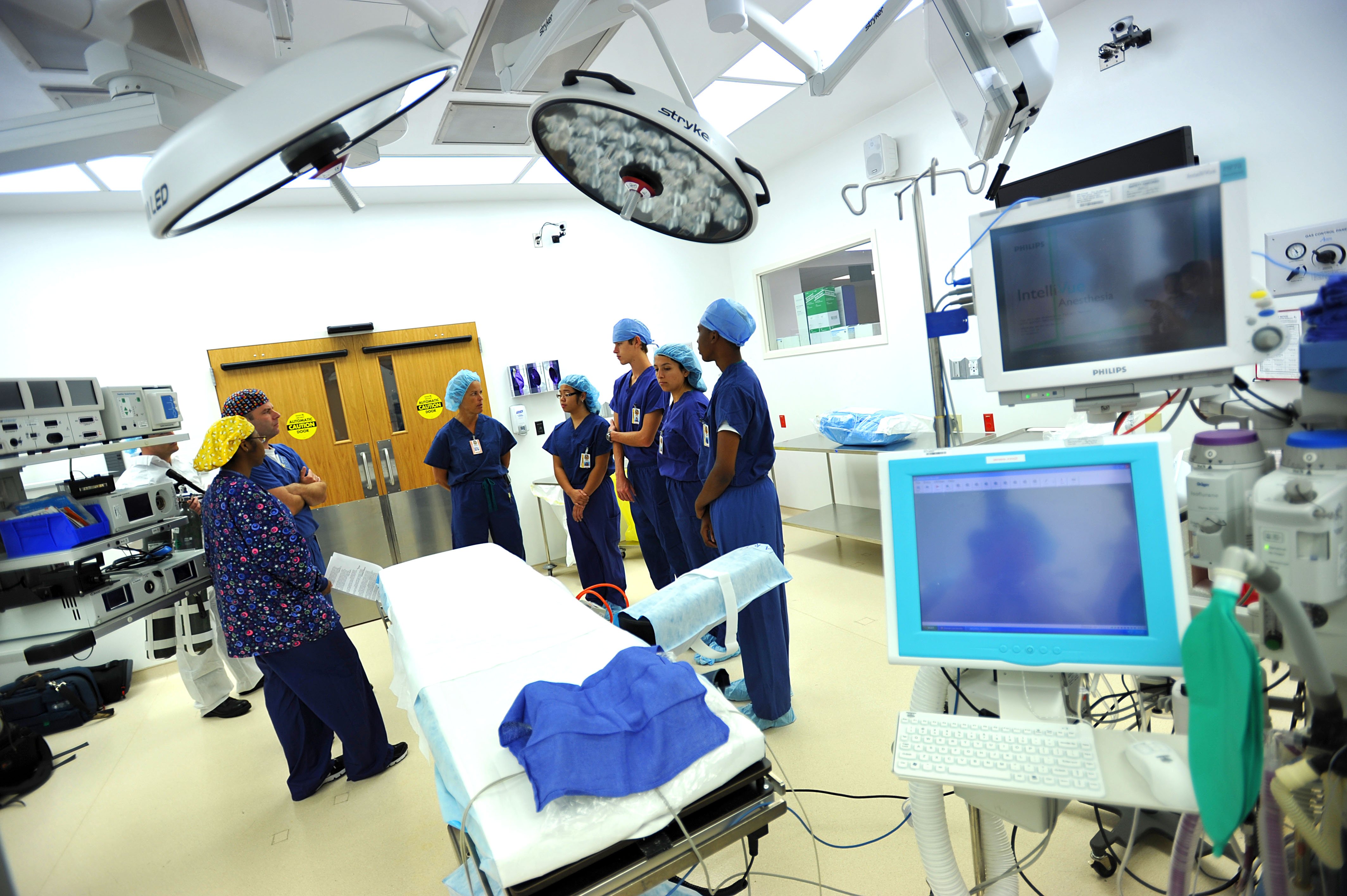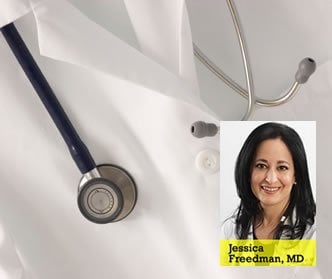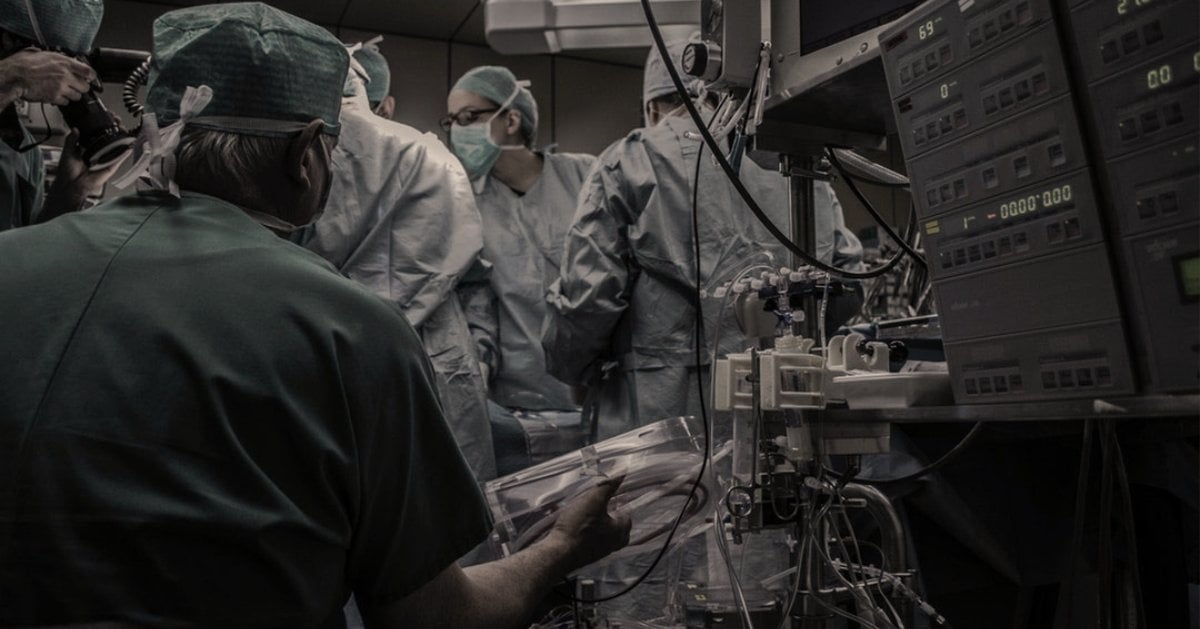Of the 4,455 total residents training in 188 ACGME-accredited radiology residency programs, 88.3% are graduates of U.S. allopathic medical schools, 7.6% are international medical graduates, and 3.9% are osteopathic graduates.1 Dr. Vicki Marx is the director of the radiology program at the University of Southern California Keck School of Medicine, and we asked for her insights into the radiology residency selection process.
feature article
The Successful Match: Getting Into Emergency Medicine
There are 4,479 total residents training in approximately 150 ACGME-accredited emergency medicine residency training programs. Of these, 85.1% are graduates of U.S. allopathic medical schools, 9.0% are osteopathic graduates, and 5.7% are international medical graduates.1 Osteopathic students may also enter an AOA-approved emergency medicine residency program. In recent years, there have been over 40 such programs.2 Based on recent match statistics, emergency medicine can be considered to be a moderately competitive specialty.
We recently discussed the emergency medicine residency selection process with Dr. Jamie Collings, the Executive Director of Innovative Education and an associate professor in the Department of Emergency Medicine at the Feinberg School of Medicine at Northwestern University. For many years, she served as the program director of the emergency medicine residency program at Northwestern. Over the past fifteen years, she has been heavily involved in advising students interested in pursuing a career in emergency medicine. Dr. Collings earned her medical degree at the Oregon Health & Science University, and then completed her residency at the University of Chicago.
20 Questions: Timur Durrani [Preventive Medicine/Medical Toxicology]

Timur Durrani, MD, MPH, MBA, is currently a medical toxicology fellow at UCSF. Dr. Durrani, who specializes in preventive medicine, attended University of California Irvine, where he received a Master of Business Administration with a focus on Health Care administration in June 2008. Prior to that, he received a Medical Doctorate from University of Arizona College of Medicine in 2004, and a Master of Public Health with a focus on Community Oriented Public Health from the University of Arizona, College of Public Health in 2004. Dr. Durrani served a family medicine residency at the University of California Los Angeles from July 2004 – June 2007, followed by a preventive medicine residency at the California Department of Public Health, Los Angeles County Public Health Department, from July 2007 – 2008. He also speaks Spanish.
Pirating Test Prep Material Doesn’t Pay
In the 21st century, piracy is more common in cyberspace than on the high seas. What are the risks and consequences of using or selling counterfeit test prep materials? An SDN Report.
The Successful Match: Getting into Obstetrics and Gynecology
There are 4,815 total residents training in nearly 250 ACGME-accredited obstetrics and gynecology training programs.1 Of these, 71.8% are graduates of U.S. allopathic medical schools, 19.9% are international medical graduates, and 8.1% are osteopathic graduates. In recent years, over 1,100 categorical positions have been available in the Match.
We recently discussed the obstetrics and gynecology residency selection process with Dr. Eugene Toy, the Vice Chair of Academic Affairs and residency program director in the Department of Obstetrics and Gynecology at The Methodist Hospital in Houston, TX. Dr. Toy is widely known as the creator, series editor, and primary author of McGraw-Hill’s popular Case Files Series.
Dual-Degree Medical Programs
Are you considering pursuit of a joint degree? Learn more about joint degree options for medical students and factors to consider before diving into a dual degree program.
Premedical Preparation
By Dr. Lisabetta Divita
While the profession has changed over the past few decades, being a physician is a challenging and esteemed calling. As such, medical school admissions are quite competitive. Medical school applicants are required to complete the AAMC or AACOMAS applications, take the MCAT and fly out for interviews. Even with all of these requirements, sadly, many excellent candidates are rejected each year. This can be a blow to your ego but if you are determined to reach your dreams, your premedical preparation cannot begin too early—some important decisions are made in high school.
Personal Statement Myths
You have read every thread on SDN about personal statements, but you still aren’t sure what you should or should not do. A ton of conflicting information is “out there” and whether you are applying to medical school, pharmacy school or anything in between, you need to be aware of some common myths about what you “must” do.
I hear about most of these myths from medical school applicants: “But my advisor said I should NEVER write about that!” “But, my fourth cousin once removed who is in medical school at a top 10 school said I shouldn’t do that.” Like everything else in the medical admissions process, personal statements have few absolutes or formulas so always take such definitive advice with a grain of salt. So, what are some of the myths I hear most often?
7 Top Tips to Get Stellar Letters of Recommendation
No matter what type of health professional school you are targeting, you will need to obtain letters of reference. Dr. Lisabetta Divita provides tips on getting the best letters possible.
Switching Specialties
Unhappy with your residency? Learn more about what it takes to switch specialties.
Avoiding Burnout
How can you avoid getting burned out during your educational career? Student Andrew Nguyen provides tips and suggestions from his fellow students.
Top Tips for Surviving Medical School
How can you achieve success in medical school? Dr. Lisabetta Divita, a recent graduate, provides her tips and recommendations.
Acing Your Residency Interview
Most residency applicants have not found themselves in the interviewee seat since they applied to medical school. Well, the residency interview is somewhat different from the medical school interview. Because you have now nearly graduated from medical school (for the traditional applicant), no one is trying to assess your commitment to medicine; rather, they are specifically evaluating your commitment to the specialty to which you are applying. They also are evaluating your ability to perform well as a resident and if you will be a good fit for their program. This article will provide some tips to help you succeed, whether you are applying to residency this interview season or in the future.
How to Work with Pre-Health Advisors and Committees
Have you ever noticed that many schools note that they want a letter of recommendation from a “pre-health advisor or committee if available to the student”? In this article, I’d like to give you the basics of what a pre-health advisor is from my perspective and why they can be your ally in the application process.
The Successful Match: How to Succeed in your Residency Interview
For most residency applicants, the arrival of November marks the beginning of the interview season. This often brings back memories of the medical school admission interview, with the ubiquitous “Why do you want to be a doctor?” question.
Four years later, you find yourself in a similar situation – this time, hoping to land a position in the specialty and residency program of your choice. “Why do you want to be a doctor?” is now replaced with “Why do you want to go into [this specialty]?” and “Why are you interested in our residency program?” While the questions will differ to some extent, you may be experiencing the same gamut of emotions – uncertainty, nervousness, and perhaps even fear.
The Successful Match: Getting into Dermatology
As the Paul Gross Professor and Vice Chair of the Department of Dermatology at the University of Pennsylvania, Dr. William James directs the dermatology residency program at the University of Pennsylvania, which recently was found to be the highest ranked academic dermatology department in the United States.1
Opportunities in the Indian Health Service
A detailed discussion of the volunteer, employment and scholarship opportunities available through the Indian Health Service.
Residency Match Success: Lessons Learned
With medical students starting to think about the upcoming residency match season, it’s a good time to review what residency applicants can do to improve their chances of matching. Many students think that how they write their residency personal statement is all that matters, but this simply is not true. As September looms, I want to focus on factors that are still (for the most part) within the residency applicant’s control. This article should also be useful for anyone who may be entering the match in the future.
- Do away electives
These “audition electives” can really help your chances of matching at a program. Some applicants with whom I speak are often fearful of doing away electives because they believe a less than perfect performance may actually hurt their chances of matching at the program where they rotate. Indeed, this is often not the case. As the associate director of a program, I often found that applicants who demonstrated a solid (or even mediocre) performance when rotating with us were ranked higher than other applicants with slightly better stats. Most program directors would rather take a student whom they know will be a solid, “no-problem” resident than take a risk on someone with whom they have not worked.
Good Things Come to Those Who Are Waitlisted
Waiting is a key component of the medical school application process. Read more about one applicant’s experiences being waitlisted.
The Successful Match: Getting into Ophthalmology
Of the 654 applicants who applied to ophthalmology in 2009, 196 (approximately 30%) failed to match. Similar results were noted in the 2007 and 2008 matches, making ophthalmology one of the most competitive specialties.
We recently discussed the ophthalmology residency selection process with Dr. Andrew Lee, chairman of the Department of Ophthalmology at The Methodist Hospital in Houston, Texas and Professor of Ophthalmology at the Weill Cornell Medical College. Prior to becoming chairman, Dr. Lee was professor of ophthalmology, neurology, and neurosurgery at the H. Stanley Thompson Neuro-ophthalmology Clinic at the University of Iowa Carver College of Medicine. Following residency training at the Cullen Eye Institute at the Baylor College of Medicine, Dr. Lee completed a fellowship in neuro-ophthalmology at the Wilmer Eye Institute.










